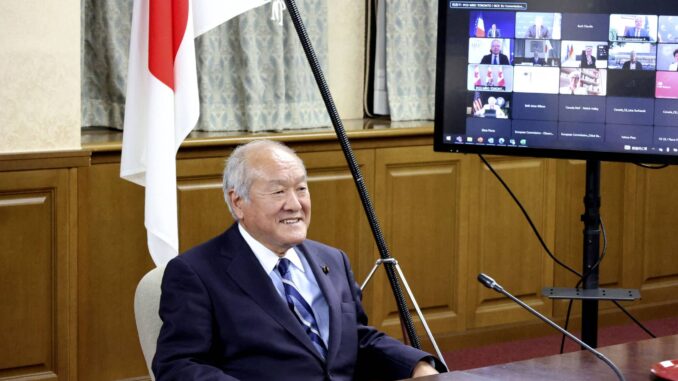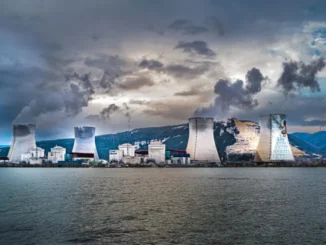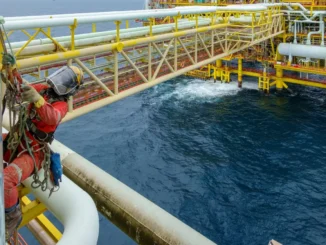
TOKYO/WASHINGTON – Finance chiefs from the Group of Seven advanced economies agreed Friday to cap Russian oil prices in their latest effort to squeeze Moscow’s revenues for its war in Ukraine while preventing global energy prices from surging by keeping crude flowing.
The measure will take effect on Dec. 5 for crude oil and Feb. 5 for petroleum products, Japanese Finance Minister Shunichi Suzuki told reporters after the virtual meeting that also involved Britain, Canada, France, Germany, Italy and the United States, plus the European Union.
The initial price cap will be set “at a level based on a range of technical inputs,” the G7 finance chiefs said in a statement, noting that its impact will be closely monitored and the price level will be revisited as necessary.
“I stressed the importance of the G7 forming a united front in resolutely coping with Russia,” Suzuki said, adding that Japan remains committed to phasing out Russian imports as pledged.
While the exact price has yet to be determined, oil from the Sakhalin-2 energy project involving Japan will be excluded from the cap, a senior Japanese Finance Ministry official said.
Under the envisioned mechanism, the provision of services which enable maritime transportation of Russian crude oil and petroleum products would only be allowed if the products are purchased “at or below a price determined by the broad coalition of countries adhering to and implementing the price cap,” according to the G7 statement.
Many of the services for the shipping of Russian oil, such as insurance, are provided in G7 countries, a U.S. official said. Over 90% of the world’s ships are insured via the International Group of P&I Clubs, a London-based association of insurers, European think tank Bruegel said in a blog post in July.
The G7 also called on other countries to join the move to maximize the effectiveness of the price cap, apparently taking into consideration that countries which have close ties with Moscow, notably China and India, have continued to import Russian oil.
After pushing for such a price cap, U.S. Treasury Secretary Janet Yellen hailed the G7 agreement as an action that will “help deliver a major blow for Russian finances and will both hinder Russia’s ability to fight its unprovoked war in Ukraine and hasten the deterioration of the Russian economy.”
The price cap will help maintain supplies to global energy markets by keeping Russian oil flowing at lower prices and will be “one of the most powerful tools” to fight inflation and protect businesses in the United States and globally from future price spikes caused by global disruptions, she said.
Further details are expected to be worked out before the start of a sanctions package by the European Union, which includes a Russian oil import ban.
The G7 has been seeking to impose “severe and immediate costs” on Russia to end its war that began in late February. The group of major developed countries is reducing its dependence on Russian energy as part of its sanctions against Moscow.
The sanctions include a U.S. embargo on Russian oil imports and a phase-out by the European Union and Japan.
Russia is among the top three oil producers, along with Saudi Arabia and the United States. Before the war began, it accounted for around 3.6% of total Japanese oil imports last year, according to government data.
The G7 has imposed a slew of punitive steps against Russia, including a freeze on assets held by President Vladimir Putin and the exclusion of Russian banks from the SWIFT international payment network.
The G7’s expansion of its sanctions regime to the energy sector marked a significant step, given that Russia is a major supplier of crude oil and natural gas to Europe.
The virtual meeting took place at a time when Japan is staying vigilant against the yen’s rapid depreciation after the currency fell to a fresh 24-year low against the U.S. dollar.
Surging inflation, partly driven by higher energy prices, has prompted major central banks, excluding the Bank of Japan, to raise interest rates. A weak yen boosts the prices of imported energy, raw materials and food for resource-scarce Japan.
The finance chiefs did not talk about recent moves in currency markets, the Japanese minister said.
Suzuki told reporters ahead of the talks that Japan will communicate closely with other nations and take “appropriate action” when needed based on a G7 agreement that excess volatility and disorderly movements in currency markets can undermine economic and financial stability.



